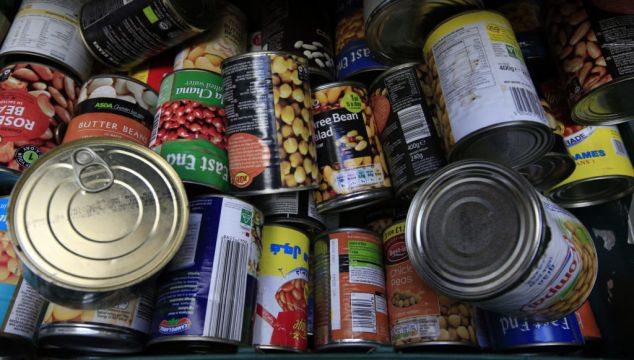Ireland’s “rising tide” of recovery is not “lifting all boats”, with vulnerable communities and children left behind, it has been claimed.
The comments were made as the Children’s Rights Alliance launched its third Poverty Monitor on Monday.
The Child Poverty Monitor 2024 tracks the Government’s progress on reducing the number of children experiencing poverty.
The report said that there was an increase in the number of children experiencing deprivation which went from 229,091 in 2022 to 260,773 last year.
A huge thank you to our amazing Chair and Panel who helped launch our #ChildPovertyMonitor with an energising discussion on what we need to do to #EndChildPoverty@Denise_CFI, Liz Canavan, @Tanya_Ward, Sinead Smith @MwRefuge, @grainne80, @NaiFeely & Gillian @SwanYouth pic.twitter.com/NVdZUrQLWX
Advertisement— Children's Rights Alliance (@ChildRightsIRL) May 20, 2024
This means that one-in-five children were living in households unable to afford goods and services which are considered the norm for society, such as being unable to afford a new pair of shoes for a child or not being able to replace broken furniture.
However, the figures show that the number of children at risk of poverty has fallen from 14.1 per cent in 2021 to 14.3 per cent in 2023.
Dr Naomi Feely, senior policy and research officer at Children’s Rights Alliance, said: “The reason for this difference is because household income went up. The last number of budgets were all overwhelming announcements around one-off measures to tackle the cost of living.
“But, essentially, we did not provide income to some families so they could still afford the basic necessities.
“What we would like to see in Budget 2025 is to step back from those one-off measures and to really look at investing in things like the child payment to all families in receipt of social welfare so we know there is sustained investment in those incomes to ensure they are adequate.”
Grainne McKenna, assistant professor at Dublin City University (DCU), said that many families have been left behind despite Ireland’s economic growth.
“Ireland has been declared by the IMF (International Monetary Fund) as the third richest country in the world, and today we look at one in five children experiencing deprivation.
“We have a budget surplus of €8 billion. And we have the worst housing crisis and children don’t have access to basic health care or public health nurses.
“We do see in terms of the positives, like the free schools meals, that’s a really important investment, but it is another universal programme and a rising tide is not lifting all boats.
“There are communities that have been left behind in our record recovery from austerity; the poster child for economic growth and development; we have left behind our most vulnerable communities.
“Investment in universal programmes like spending 94 million euro on free school meals for children that don’t necessarily need it.
“I think it’s good to welcome Equal Start but the investment in Equal Start this year is four million euro and that pales in comparison to the €45 million that we are intending to spend on a private jet, and it pales in comparison to the €20 million that was spent on greyhound racing.
“Some four million euro in 2024, and €13.5 million in 2025 is not a priority when we look at the number of children that the investment in Equal Start aims to support.
“You are talking about money per head of about 214 euro for the most needy children in society, but in the meantime we see 210 million euro spent every year on 51 private schools that support some 30,000 children.
“As we celebrate policies and ideas, we have to be realistic about the money spent on communities that really need it.”
Gillian Brien, director of Swan Youth Service, said that the working class is systematically oppressed.
“The working class are very proud and we are represented across the whole of Ireland. We are in rural and urban areas,” she said.
“There is still systemic, sexist decisions made in our governments. Why is it we only give two euros (increase) to lone parents?
“This political establishment has never served the needs for this community so this community is being political saying, ‘you do not serve our needs and oppress us’.”
Tanya Ward, chief executive of the Children’s Rights Alliance, said: “It is stark that we are the third richest country and we have these poverty rates.
“It’s the big dent to the country. There are big questions to be asked about the amount of money we invest in different things and decisions that are made.
“There are some questionable decisions that are made year on year.
“The welfare payment increase of €2 last year for families who are below the poverty line wasn’t even the cost of two litres of milk. There’s something there about political priorities.”
Elizabeth Canavan, assistant secretary general of the social policy and public service reform division at the Department of the Taoiseach, said that persistent poverty has a “marked effect” on a whole range of a child’s outcomes, including health, education and wellbeing.
She said these effects can go into adulthood and are intergenerational.
She added: “There has been some progress in the last year with measures such as the income supports to make sure that the families are insulated from the worst economic pressures.
“There is also a reduction in the cost of childcare for families.”







